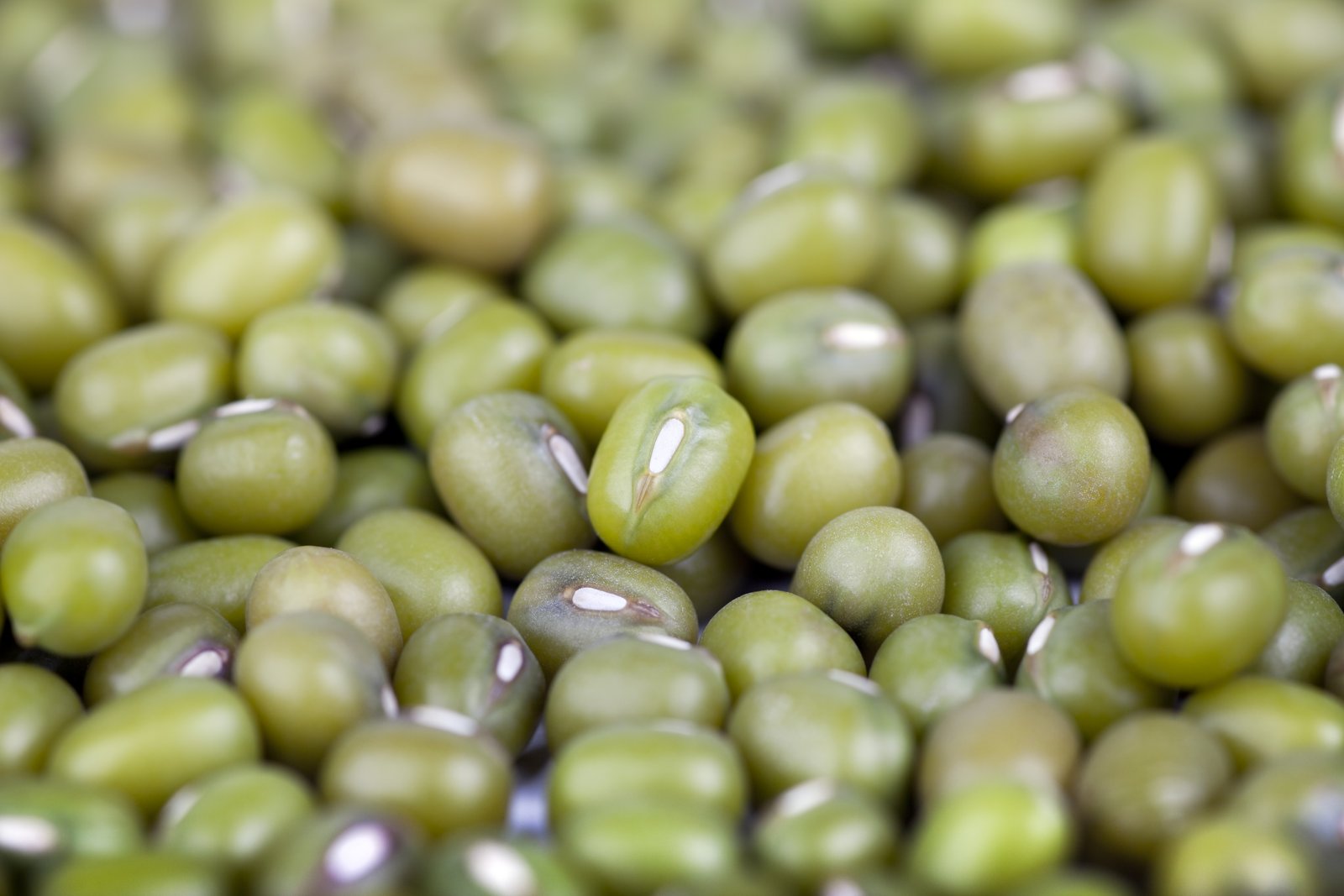
Boost Your Run with the Incredible Monggo Health Benefits
Mung beans, known as “monggo” in some cultures, are small and mighty legumes packed with nutritional benefits. Whether you’re a health enthusiast, vegetarian, triathlete, or just someone looking to make healthier choices, mung beans can be a game-changer in your diet. Let’s explore the nutritional facts and health benefits of mung beans and discover why they should become a staple in your pantry.
Nutritional Facts of Mung Beans
Discover the incredible benefits with these nutritional facts:
Rich in Protein
They are an excellent source of plant-based protein, ideal for vegetarians and vegans. They provide essential amino acids that help build and repair muscles, which is crucial for athletes and fitness enthusiasts.
High in Fiber
Fiber is essential for a proper digestive system, and these beans are loaded with it. A diet high in fiber can help regulate bowel movements, prevent constipation, and reduce the risk of chronic conditions such as heart disease and type 2 diabetes.
Packed with Vitamins and Minerals
These beans are a nutritional powerhouse, loaded with a variety of essential vitamins and minerals that offer numerous benefits. Here’s a closer look at some of the key nutrients found in them:
- Vitamin C: Known for its powerful antioxidant properties, Vitamin C boosts the immune system, helping the body fend off infections and illnesses. It also plays a crucial role in collagen production, which promotes vibrant skin, aids in wound healing, and maintains the integrity of connective tissue.
- Vitamin K: This vitamin is vital for bone strength, as it helps regulate calcium and promotes bone mineralization. Additionally, Vitamin K is essential for the process of blood clotting, preventing excessive bleeding when injuries occur.
- Folate: Also known as Vitamin B9, folate is essential for DNA synthesis and repair, making it crucial for cell growth and metabolism. It’s particularly important for pregnant women, as it supports fetal nervous system development and reduces the risk of neural tube defects.
- Iron: Iron is a crucial component of hemoglobin, the protein in red blood cells that carries oxygen from the lungs to the rest of the body. Adequate iron intake is crucial for energy production, cognitive function, and preventing anemia, a condition characterized by fatigue and weakness.
- Magnesium: This mineral supports over 300 biochemical reactions in the body, including muscle and nerve function, blood glucose control, and energy production. Magnesium also contributes to the structural development of bone and is involved in synthesizing DNA and RNA.
Low in Calories
Despite their rich nutrient profile, mung beans are low in calories. This makes them an excellent food choice for those looking to maintain or lose weight without sacrificing nutrition.
Benefits of Mung Beans
These nutritional powerhouses offer numerous advantages. Here are some reasons to include them in your diet:
Supports Heart Function
They contain a wealth of antioxidants, fiber, and potassium, all of which contribute significantly to heart function. The antioxidants help reduce inflammation and combat oxidative stress, protecting the cardiovascular system. Meanwhile, the fiber content helps lower cholesterol levels, and potassium supports healthy blood pressure levels by counteracting the adverse effects of sodium.
Promotes Weight Loss
Monggo beans are excellent for weight management with their high fiber and protein content. The fiber helps you feel full longer, reducing the likelihood of overeating and unnecessary snacking. The protein content also promotes satiety and helps maintain muscle mass, which is crucial for a healthy metabolism. This makes them a fantastic addition to any weight-loss diet, providing sustained energy and nutrition without excess calories.
Enhances Digestive Function
They are packed with dietary fiber and play a crucial role in digestive function. The fiber aids in promoting regular bowel movements, thereby preventing constipation and improving overall bowel function. This can help reduce the risk of gastrointestinal disorders and enhance nutrient absorption, ensuring your digestive system works efficiently.
Improves Blood Sugar Levels
These beans have a low glycemic index, meaning they slowly release sugar into the bloodstream, preventing rapid blood sugar spikes. This slow-release property helps maintain stable blood sugar levels, which is especially beneficial for people with diabetes or those at risk of developing the condition. Additionally, fiber further helps manage blood sugar by slowing down the digestion and absorption of carbohydrates.
Boosts Immunity
The vitamins and minerals found in these monggo legumes, particularly vitamin C, are essential for a robust immune system. Vitamin C acts as an antioxidant, protecting immune cells from damage by free radicals and enhancing their function. This boost in immunity makes you less susceptible to infections and illnesses, supporting overall wellbeing.
Reduces Chronic Disease Risk
Rich in antioxidants, such as flavonoids and phenolic acids, mung beans help fight free radicals in the body. These antioxidants reduce oxidative stress, a major contributor to chronic diseases like cancer, heart disease, and neurodegenerative disorders. By incorporating them into your diet, you can significantly lower your risk of developing these chronic conditions and support long-term wellness.
How to Incorporate Mung Beans into Your Diet
Adding these legumes to your diet can be a great way to boost your nutrition with minimal effort. Here’s a guide on incorporating these nutrient-rich legumes into your meals.
Cooking Methods
These legumes can be cooked in various ways to suit your taste and dietary needs:
- Boiling: Simply boil them in water until they are tender. This method is straightforward and versatile. Once cooked, they can be added to soups for protein and texture, incorporated into stews to thicken and enrich the broth, or tossed into salads for a nutritious boost.
- Sprouting: Sprouted legumes are rich in enzymes and have a crunchy texture. They can be added to salads for a fresh and healthy element, used in sandwiches for extra crunch and nutrition, or included in stir-fries to enhance the dish with their unique flavor and health benefits. Sprouting also increases their nutrient content, making them an excellent addition to a balanced diet.
- Mashing: Cooked legumes can be mashed to create a smooth or chunky consistency. This mashed mixture can serve as a base for veggie burgers, providing a hearty and nutritious alternative to meat. Additionally, mashed legumes can be transformed into delicious dips by mixing them with spices, herbs, and other ingredients. These dips can be enjoyed with crackers, vegetables, or bread, offering a versatile and healthful snack option.
- Roasting: Roasting can bring out a nutty flavor and a crispy texture. Season the beans with your favorite spices and roast them for a healthy snack. Roasted legumes can also be used as a crunchy topping for salads or soups, adding both flavor and texture to your dishes.
- Blending: Blending cooked legumes into a puree can create a creamy base for soups and sauces. This method allows you to seamlessly incorporate the nutritional benefits of these legumes into various dishes. Pureed legumes can also be used to make spreads, which are great for sandwiches or as a dip for vegetables.
Experiment with these cooking methods to discover new ways to enjoy the versatility and health benefits of these legumes in your diet!
Recipe Ideas
Mung Salad
A refreshing and nutritious salad perfect for a light lunch or side dish.
Ingredients:
- 1 cup cooked mung
- 1 cup diced cucumber
- 1/2 cup diced tomatoes
- 1/4 cup finely chopped red onion
- 2 tablespoons chopped cilantro
- Juice of 1 lemon
- Salt and pepper to taste
Instructions:
- Combine the cooked mung, cucumber, tomatoes, red onion, and cilantro in a large bowl.
- Drizzle with lemon juice and season with salt and pepper.
- Toss everything together until well mixed.
- Serve chilled, and enjoy!
Mung Soup
A hearty and warming soup perfect for colder days.
Ingredients:
- 1 cup dried mung
- 1 onion, chopped
- 2 garlic cloves, minced
- 1 carrot, chopped
- 1 celery stalk, chopped
- 4 cups vegetable broth
- 1 teaspoon ground turmeric
- Salt and pepper to taste
Instructions:
- Rinse the mung and soak in water for at least 4 hours.
- In a large pot, sauté the onion, garlic, carrot, and celery until soft.
- Add the soaked mung and vegetable broth to the pot.
- Stir in the turmeric, salt, and pepper.
- Bring to a boil, then reduce heat and simmer for about 30-40 minutes until the mung is tender.
- Serve hot.
Conclusion
Mung beans are a nutritional powerhouse offering numerous health benefits, from improving heart health to supporting weight loss and enhancing digestion. Incorporating mung beans into your diet is simple and can be done in various delicious ways.
Stay Informed on Your Health Journey
We trust you’ve found this comprehensive guide beneficial in understanding the incredible health benefits of mung beans. But don’t let your journey toward optimal health stop here! Sign up for our newsletter to receive more expert content, tips, recipes, and educational materials that support your wellbeing. By subscribing, you’ll stay updated on the latest in nutrition and health, ensuring you have the knowledge to make informed food choices.
Remember, a healthy lifestyle starts with informed decisions, and we’re here to help you every step of the way. So don’t wait—subscribe to our newsletter today and continue on your path to better health!
